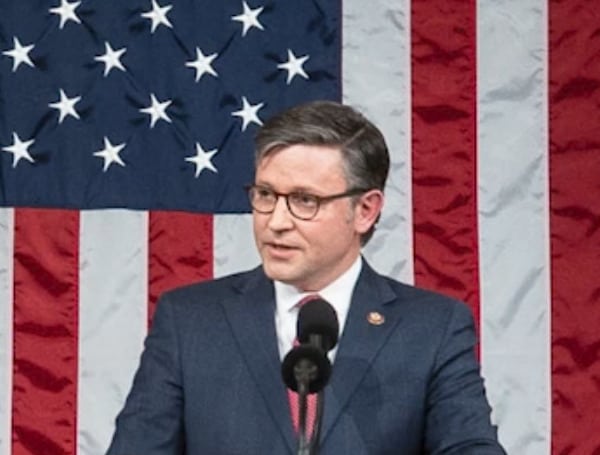The House of Representatives, led by Majority Leader Steve Scalise, has introduced a comprehensive new rules package for the 119th Congress. This resolution outlines procedural amendments, committee reorganizations, and legislative priorities designed to shape the session’s operations and objectives.
The resolution includes significant changes to the rules governing House proceedings. One notable amendment involves resolutions to declare the Office of Speaker vacant.
Under the new rules, such resolutions can only be considered if submitted by a majority party member with eight co-sponsors from the same party. This change reflects an effort to add more structure to the process of addressing potential vacancies in leadership and securing Mike Johnson’s speakership.
READ: FBI Urges Revocation Of Bail For Virginia Man Who Stockpiled IEDs In His Home
Committees are also set to experience modernization, with an option to implement electronic voting. This innovation aims to streamline committee operations and improve efficiency, subject to regulations established by the Committee on Rules and the Committee on House Administration.
Additionally, certain committees will see changes to their official titles, such as renaming the “Committee on Oversight and Accountability” to the “Committee on Oversight and Government Reform” and the “Committee on Education and the Workforce” to the “Committee on Education and Workforce.”
The resolution has also eliminated the Office of Diversity and Inclusion, reallocating its responsibilities to other entities within the House. This move has sparked discussions about the implications for diversity initiatives and representation in legislative operations.
Further, the rules package codifies various procedural orders into the standing rules of the House. These include provisions for legislative numbering, designated district work periods, and the availability of legislative documents in electronic formats. These changes aim to enhance transparency and accessibility in legislative processes.
READ: Texas Rep. Chip Roy Casts Doubt On Speaker Mike Johnson’s Support Ahead Of Key Vote
One of the package’s central themes is transparency and accountability. Members of the House will now be required to personally cover settlements related to acts of discrimination under the Congressional Accountability Act. Additionally, each office must prominently display anti-harassment and anti-discrimination policies, reinforcing workplace protections for staff and employees.
The resolution places a significant emphasis on leveraging technology in legislative processes. It encourages the integration of artificial intelligence (AI) to streamline administrative tasks, improve decision-making, and enhance legislative analysis. This move reflects a broader institutional priority to modernize operations and make legislative work more efficient.
The rules also prioritize several high-profile bills for debate, waiving procedural barriers to expedite their consideration. These bills address critical issues such as immigration, public safety, tax policies, and voting regulations. Examples include legislation requiring proof of citizenship for voter registration, imposing criminal penalties for evading federal officers, and enhancing sanctions related to the International Criminal Court.
READ: UPDATE: At Least 15 Dead, 35 Injured In New Orleans Terror Attack On New Year’s Day
Committees like the Tom Lantos Human Rights Commission and the House Democracy Partnership will continue to operate with expanded mandates and resources. The Office of Congressional Ethics has been renamed the Office of Congressional Conduct, signaling a renewed focus on ethical oversight and accountability within the House.
Supporters of the rules package argue that it promotes fiscal responsibility, enhances transparency, and streamlines legislative operations. However, critics have raised concerns about the removal of the Office of Diversity and Inclusion and the prioritization of certain partisan legislative initiatives.
The House will vote on adopting the new rules in the coming days. If approved, these changes will guide the legislative priorities and operations of the 119th Congress, setting the stage for significant policy debates and shaping the nation’s political landscape.
Please make a small donation to the Tampa Free Press to help sustain independent journalism. Your contribution enables us to continue delivering high-quality, local, and national news coverage.
Connect with us: Follow the Tampa Free Press on Facebook and Twitter for breaking news and updates.
Sign up: Subscribe to our free newsletter for a curated selection of top stories delivered straight to your inbox.

